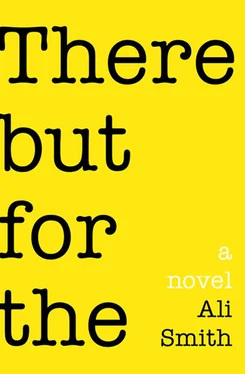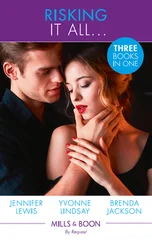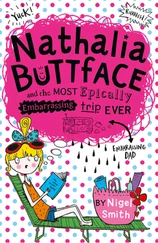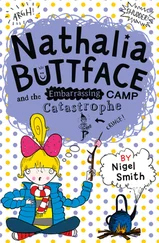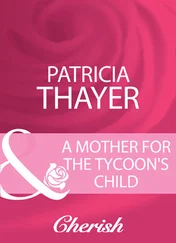Bernice is nodding at him, as if in agreement with him.
Oh God. Oh no. He thought he was just thinking but he has, it seems, actually been speaking out loud.
The merest opening of a common buttercup on a piece of wasteground in the light of an ordinary day, Bernice is saying, the mere blowing along a road of a piece of litter, is enough to dispel the so-called truth of every single thing online. But we’re forgetting how to know what’s real. That’s the real problem.
How much of it has he said out loud? He can’t be sure. Oh God. Did he say the word wanked? Did he say the stuff about the soldiers and the swimming pool? Oh God.
Bit of a Luddite approach, though, Jen says.
The internet IS real, Hannah is saying. You can’t just say the internet isn’t real. I have it in my house. That makes it real to me.
I refute the internet thus, Bernice says and knocks her hand into the neck of an empty decanter in front of her so that Jen has to catch it to stop it from toppling.
Hannah starts wailing that Bernice, because she has said the words contemporary and philosophy, is being superior and showing off. It is a fate worse than arty talk. Hugo and Richard are now making threats at each other about Damien Hirst’s skull. It looks like a physical fight will break out.
Mark goes upstairs because he thinks he might be sick.
The bathroom is empty.
Through the open door of the room next to it, Miles seems to be measuring something by stepping and counting, stepping and counting. He looks charming, preoccupied. He sees Mark.
Seven steps long, five wide, he says.
Maybe Miles is a secret estate agent.
He has taken his knife and fork upstairs with him. He puts them on the sideboard, takes the salt cellar out of his pocket and puts it down next to them.
What are they for? Mark says.
Miles shrugs his shoulders.
Eating with, he says.
He presses the light switch, on then off. Both men laugh.
It’s all sound and fury downstairs, Mark says. They’re going to punch each other’s skulls in any minute over whether Damien Hirst’s skull means anything.
Miles shrugs his eyebrows and smiles a resigned smile.
And I think I might be sick, Mark says. Any minute now.
Miles nods. His eyes are kind.
See you, he says.
He means: see you in a minute, when you’ve sorted yourself out.
Mark goes into the bathroom. He sits on the floor until he feels better, less hot. Then he stands up and urinates. As he does, a whole childhood poem he didn’t know he knew flows by itself through his head.
Fury said to a mouse, That he met in the house, “Let us both go to law: I will prosecute YOU. — Come, I’ll take no denial; We must have a trial: For really, this morning I’ve nothing to do.” Said the mouse to the cur, “Such a trial, dear Sir, with no jury or judge, would be wasting our breath.” “I’ll be the judge, I’ll be the jury,” said cunning old Fury: “I’ll try the whole cause, and condemn you to death.”
Like the tail of a creature; yes; the poem had gone down the page in the book shaped like the tail of a creature.
He’ll tell Miles; Miles will be interested. Miles will maybe know what the poem is.
But when Mark comes out of the bathroom the bedroom door is shut.
For a moment he thinks Miles must have gone downstairs again. He turns to go himself. But then he stops. He stands in front of the shut door and puts his ear against it.
He goes downstairs. He stops before the dining-room door, which is half closed, and stands outside. In there they are talking about someone. There is a great deal of laughter, as if someone is the butt of a joke.
He listens. They are talking about Miles, maybe.
No, he’s great, I mean, he’s your stereotypical gay man, Caroline is saying. Your professional working gay man, I mean.
He didn’t comment on my clothes at all. They’re supposed to comment on your clothes, Hannah is saying. And he’s not as neat and clean as they usually are. They’re usually more pressed or ironed or something.
Loves his mummy, Richard says.
His mother’s dead, actually, Hugo says.
That’ll be why he’s not so ironed-looking as he should be, Richard says.
Someone, Hannah, laughs.
How do you know about his mother? Caroline says.
He told me, Hugo says. She took her own life when he was a boy. Eleven or twelve.
They’re not talking about Miles. Took her own life. It is a kindness in Hugo, to be so drunk yet to choose to put it as if he is holding it in gloved hands.
Sad, Jen says. That’s very sad, isn’t it?
She was some kind of painter, Hugo says.
House? Richard says.
Laughter, somebody, subdued.
He was brought up by an aunt, Hugo says. His father was away or not there, something like that, and he was brought up by an aunt after she, his mother, after she went. She was quite well known, well, she was after she died, I’d never heard of her. Faye or Faith or something.
You mean Faye Palmer? Bernice’s low voice interrupts. His mother was Faye Palmer?
His second name is Palmer, Hugo says.
Oh, Terence says. Oh my God. One of Faye Palmer’s sons.
He’d be about the right age, Bernice says. Oh, that’s amazing.
Who’s Faye Palmer? Hannah says loud and incredulous.
Faye Palmer, Bernice says.
The Bayoudes tell the table about Faye. Young. Jewish. Wildly talented. Hugely promising. Original. Seminal. Visual artist. 1950s. Strikingly beautiful when you see photos of her. You must have heard of her, they say, she’s often referenced alongside Plath.
Oh yes, Hugo says, Plath, someone’s wife, wasn’t she, and completely brilliant, and insane as a nest of snakes.
Bernice describes Faye’s most famous work, History Sequence 1 to 9, and how it begins with the faraway woman in the chair and, as you come closer, progress from canvas to canvas, you see that the woman is tied at the wrists and ankles to the chair, and then that she looks like she is crying, and then that what she is crying is blood, and as you come closer still you see that her eyes are a bloody mask.
Then you’re right up against the face, up against the eyes, and you see that the eyelids have been sewn shut, with foul little bloody little black stitches, Bernice says. In number 8 there’s nothing but these stitches in extreme close-up. It’s like an abstract, but it isn’t, it’s painstakingly figurative. And then in the final canvas, she goes beyond the mask, right into the eye, and there’s no eye in there, the socket is empty, there’s a foul-looking insect and it’s eating the lining of the socket.
Oh gross, Hannah says. Oh that’s the grossest thing I ever heard.
It’s true, Terence says. It’s an image from reality. Somewhere there’s a quite famous piece of writing by her, about what it means to have to bear the knowledge of inhumanity, having to bear it communally — about how this thing really happened to a war prisoner, who’d had his eyes removed and then his torturers had sewn beetles into where the eyes had been.
Oh I’m going to puke, Hannah says, I really am.
And the big controversy after her death, Bernice says, was that she replaced the man to whom this really happened with what ostensibly, in her paintings, appears to be a series of self-portraits.
Oh, ostensibly, Richard says.
Bernice ignores his mocking. She goes on to tell them that this appropriating of history, the fusion of personal and historic, is the thing critics of Palmer’s work still argue about most. In many ways, she says, a continuing tendency to dwell on the details of her autobiography, particularly on the fact that she committed suicide and the possible reasons why, has blocked the proper aesthetic reception of the work.
Читать дальше
